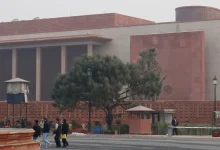
The Waqf (Amendment) Act, 2025, officially took effect on April 8, 2025, after being passed by both houses of Parliament and receiving the President’s assent. The Ministry of Minority Affairs issued a notification confirming the law’s enforcement, marking the culmination of its legislative journey.
However, the new legislation is already facing legal hurdles. The Supreme Court is slated to review petitions questioning the amendments’ constitutional validity, with a tentative hearing scheduled for April 15. This date remains provisional and will be finalized once the court releases its official cause list.
In response, the central government filed a caveat with the Supreme Court on April 8, requesting an opportunity to present its case before any rulings are made on the petitions. This move underscores the contentious nature of the amendments.
The challenges come from a diverse group of petitioners, including Lok Sabha MPs Asaduddin Owaisi and Mohammad Jawed, the Indian Union Muslim League, and the All India Muslim Personal Law Board, alongside others like DMK’s A Raja, AAP MLA Amanatullah Khan, Samastha Kerala Jem-iyyathul Ulama, and the Association for Protection of Civil Rights. They argue that the act is arbitrary, discriminates based on religion, contravenes the Shariat Act, and undermines the Muslim community’s ability to oversee its religious institutions.




